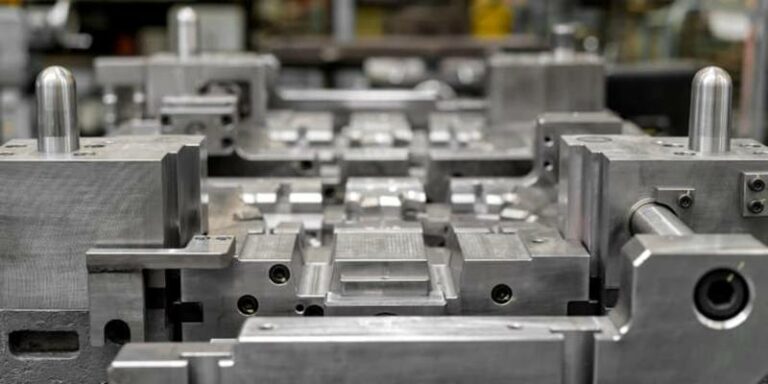The 6-Second Trick For Stahl Specialty Company
Table of ContentsThe 7-Second Trick For Stahl Specialty CompanyAn Unbiased View of Stahl Specialty CompanyAbout Stahl Specialty CompanyThe Ultimate Guide To Stahl Specialty CompanyThe smart Trick of Stahl Specialty Company That Nobody is Discussing
Chemical Contrast of Cast Aluminum Alloys Silicon promotes castability by reducing the alloy's melting temperature and improving fluidness throughout spreading. Additionally, silicon contributes to the alloy's stamina and put on resistance, making it beneficial in applications where toughness is important, such as auto parts and engine elements.It also enhances the machinability of the alloy, making it simpler to refine right into completed products. By doing this, iron adds to the total workability of light weight aluminum alloys. Copper increases electric conductivity, making it advantageous in electrical applications. It likewise boosts rust resistance and adds to the alloy's overall toughness.
Manganese contributes to the strength of light weight aluminum alloys and improves workability. It is generally utilized in wrought aluminum items like sheets, extrusions, and accounts. The presence of manganese help in the alloy's formability and resistance to splitting during construction procedures. Magnesium is a light-weight aspect that supplies stamina and effect resistance to light weight aluminum alloys.
It permits the production of lightweight components with outstanding mechanical buildings. Zinc improves the castability of aluminum alloys and helps regulate the solidification process during spreading. It improves the alloy's toughness and hardness. It is frequently found in applications where detailed forms and fine information are required, such as attractive castings and particular vehicle parts.
4 Simple Techniques For Stahl Specialty Company
Due to the fact that aluminum-silicon alloys have good casting properties, high gas properties, basic procedures, and excellent deterioration resistance, aluminum-silicon alloys are most commonly made use of in the die-casting sector in the house and abroad. At the same time, aluminum-silicon alloys are also fairly early and extensively identified alloys established and used in die-casting. After constant study and renovation, the majority of the current global mainstream aluminum-silicon alloys have been completed and are absolutely nothing greater than A356, A360, A380, ADC12, B390, and A413.
The main thermal conductivity, tensile toughness, yield strength, and prolongation differ. Select appropriate basic materials according to the performance of the target item produced. Amongst the above alloys, A356 has the highest possible thermal conductivity, and A380 and ADC12 have the most affordable. The tensile restriction is the contrary. A360 has the most effective yield toughness and the greatest prolongation price.

The Best Strategy To Use For Stahl Specialty Company
In precision spreading, 6063 is fit for applications where elaborate geometries and high-grade surface finishes are extremely important. Examples include telecommunication units, where the alloy's exceptional formability allows for sleek and aesthetically pleasing styles while keeping architectural integrity. In the Lights Solutions sector, precision-cast 6063 components create stylish and effective illumination fixtures that view it call for complex shapes and excellent thermal efficiency.
(http://www.askmap.net/location/7194638/united-states/stahl-specialty-company)
It leads to a better surface area coating and much better rust resistance in A360. The A360 displays superior elongation, making it perfect for complex and thin-walled parts. In precision casting applications, A360 is fit for industries such as Customer Electronic Devices, Telecommunication, and Power Devices. Aluminum Castings. Its boosted fluidness permits detailed, high-precision parts like smart device coverings and interaction gadget housings.

In precision spreading, light weight aluminum 413 beams in the Consumer Electronic Devices and Power Devices sectors. It's typically made use of to craft complex components like smartphone real estates, camera bodies, and power tool housings. Its precision is impressive, with limited tolerances up to 0.01 mm, making certain flawless product assembly. This alloy's exceptional deterioration resistance makes it an exceptional option for outdoor applications, ensuring durable, long lasting products in the mentioned sectors.
More About Stahl Specialty Company
Once you have decided that the light weight aluminum pass away casting process appropriates for your job, an important next step is choosing the most suitable alloy. The light weight aluminum alloy you pick will significantly influence both the spreading procedure and the residential or commercial properties of the end product. Due to this, you must make your choice meticulously and take an enlightened approach.
Determining one of the most appropriate aluminum alloy for your application will suggest weighing a broad array of characteristics. These comparative alloy qualities follow the North American Die Casting Association's standards, and we've separated them into two groups. Foundry. The first classification addresses alloy characteristics that affect the production procedure. The second covers qualities influencing the residential properties of the end product.
The alloy you pick for die spreading directly affects numerous elements of the casting procedure, like just how easy the alloy is to deal with and if it is susceptible to casting issues. Hot breaking, also called solidification breaking, is a common die casting problem for aluminum alloys that can lead to inner or surface-level tears or cracks.
The Buzz on Stahl Specialty Company
Specific aluminum alloys are more susceptible to hot breaking than others, and your option ought to consider this. Foundry near me. It can harm both the actors and the die, so you ought to look for alloys with high anti-soldering homes.
Corrosion resistance, which is already a notable attribute of light weight aluminum, can differ significantly from alloy to alloy and is an essential characteristic to take into consideration depending upon the ecological conditions your product will be subjected to. Use resistance is an additional building commonly looked for in aluminum items and can differentiate some alloys.